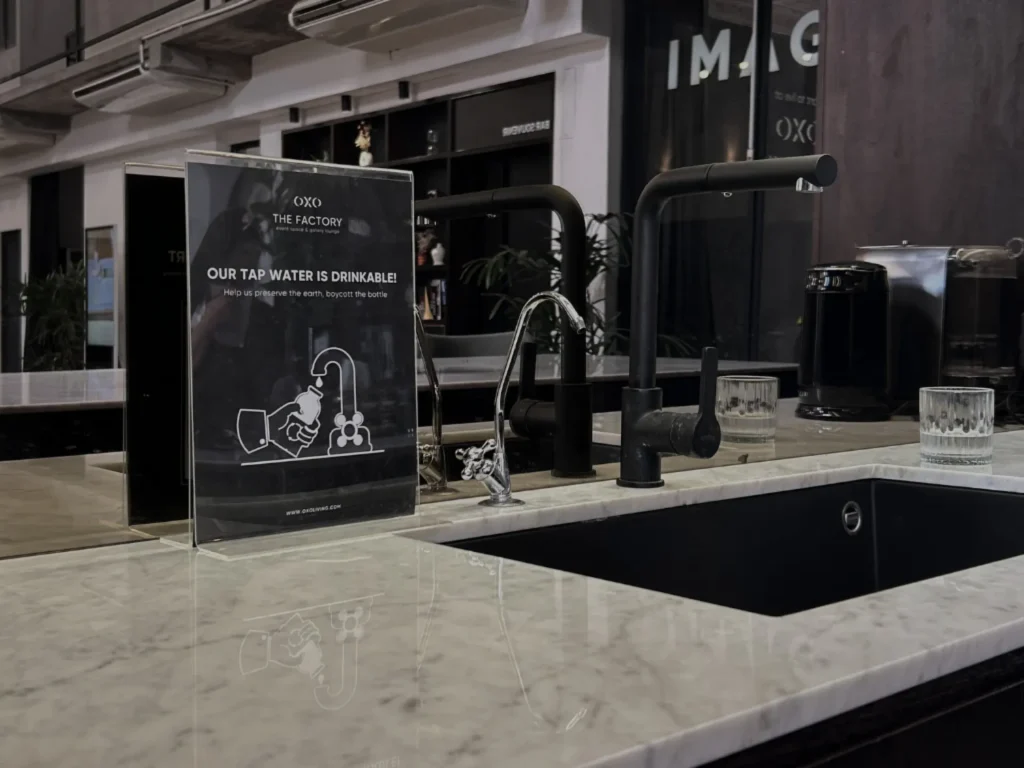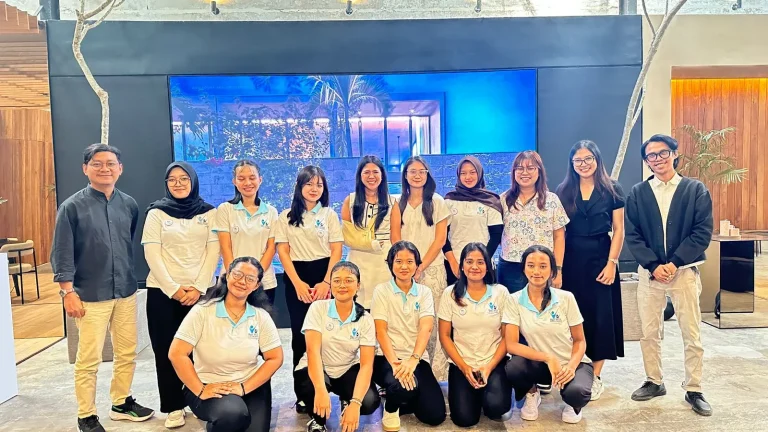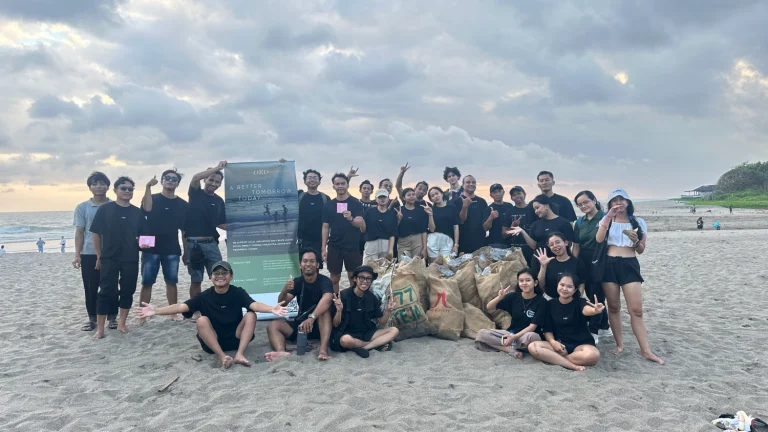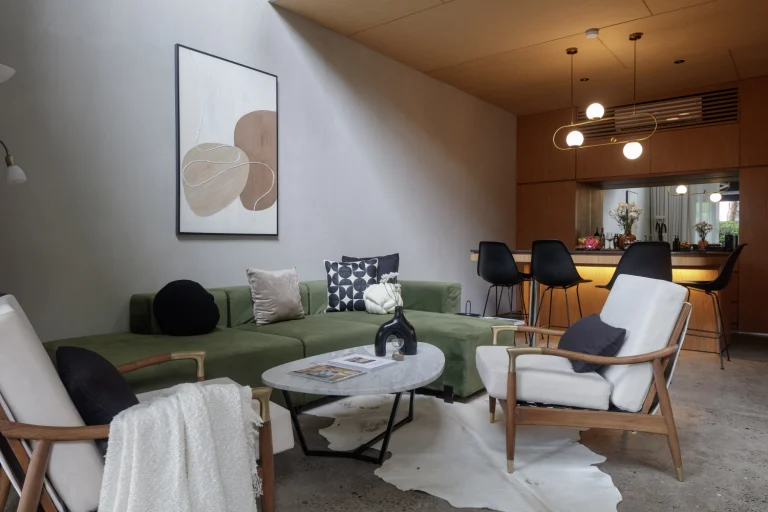
As more people seek sustainable choices, clean drinking water options are coming under greater scrutiny. With bottled water often marketed as pure and convenient, many still turn to it without considering its environmental impact. We’re committed to reducing our carbon footprint and have implemented RO (Reverse Osmosis) water systems across all our properties and at our headquarters, OXO The Factory, as part of this commitment to eco-friendly practices. But how does RO water stack up against bottled water in terms of sustainability? Let’s take a closer look.

1. Environmental Impact of Plastic Waste
Bottled water is one of the biggest contributors to plastic waste. With millions of plastic bottles produced daily, only a small percentage are actually recycled, leaving the rest to pollute our oceans and landfills. RO water systems, on the other hand, eliminate the need for single-use plastic. By providing fresh, filtered water on-site, RO systems reduce plastic waste and the negative impact it has on our environment. This is why we’ve incorporated RO water systems in all OXO-managed properties, ensuring a greener, plastic-free approach to clean water.
2. Carbon Footprint from Production and Transportation
Producing and transporting bottled water requires substantial energy and resources. From the petroleum needed to manufacture plastic bottles to the emissions from transporting them across the country, bottled water has a high carbon footprint. RO systems use local tap water, which is filtered on-site, reducing transportation-related emissions significantly. At OXO, our RO systems provide water directly from local sources, eliminating the need for long-distance transportation and minimizing our carbon footprint.
3. Water Conservation and Efficiency
While RO systems do use water to filter out contaminants, they’re still more water-efficient than the bottled water production process, which requires more water than what’s actually contained in each bottle. Additionally, RO systems have become more efficient, and the water waste can be repurposed for non-potable uses like cleaning and gardening. We are constantly exploring ways to improve our RO systems’ efficiency at OXO, ensuring our water use aligns with our sustainability values.
4. Health Benefits Without Packaging Waste
One advantage of bottled water is its perceived purity, but it often comes with hidden concerns such as microplastics or chemicals leaching from plastic bottles. RO water offers the same purity but without the packaging waste. At OXO, our RO systems ensure that residents and employees have access to clean, filtered water without the environmental risks associated with plastic bottles.
5. Long-Term Sustainability and Cost Savings
RO systems are a one-time investment with periodic maintenance, whereas the cost of bottled water adds up quickly over time. By installing RO systems in all our properties, we provide a sustainable, cost-effective solution for clean water. For our residents, this means they can enjoy fresh water without the environmental or financial impact of bottled water.

Our commitment to sustainable living drives us to choose RO water systems over bottled water, minimising plastic waste, reducing our carbon footprint, and providing safe, clean drinking water for our residents and employees. By opting for RO water, we’re taking steps toward a greener future and encouraging others to consider sustainable alternatives in their own lives. Let’s continue to #BuildTomorrowToday and create a cleaner, more sustainable world, one sip at a time.


